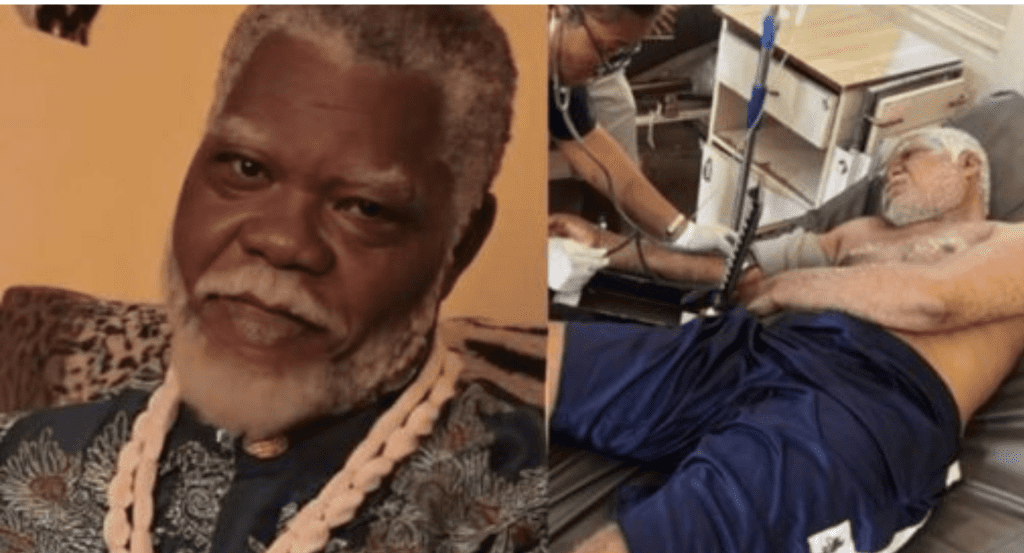 Today, 54gene, a Nigerian health technology startup focused on genomic research in Africa, announced a new partnership with the World Health Organization (WHO) aimed at advancing genomic research across the continent. This partnership represents a significant stride for health research in Africa, as it seeks to build the region’s capacity in data-driven health solutions, targeting health disparities and improving access to personalized healthcare solutions.
Today, 54gene, a Nigerian health technology startup focused on genomic research in Africa, announced a new partnership with the World Health Organization (WHO) aimed at advancing genomic research across the continent. This partnership represents a significant stride for health research in Africa, as it seeks to build the region’s capacity in data-driven health solutions, targeting health disparities and improving access to personalized healthcare solutions.
54gene, founded in 2019, has developed a reputable position within the health technology space by amassing and analyzing genomic data specific to African populations, a field that has traditionally been underrepresented in global genomic research. Through this new collaboration, 54gene will work with WHO to address the pressing healthcare needs of African populations, using data to create precision medicine tailored to the continent’s unique genetic makeup.
Strengthening Genomic Research Infrastructure
The partnership between 54gene and WHO will focus on improving genomic research infrastructure across African nations. WHO’s support will enable 54gene to expand its resources, enhancing lab capabilities, data storage, and analysis infrastructure, which are essential for conducting large-scale genomic research. This expansion will provide more African researchers with access to advanced genomic data, supporting them in developing insights into the genetic basis of diseases prevalent in Africa.
According to Abasi Ene-Obong, CEO of 54gene, the partnership aligns with the company’s mission to bridge the gap in African genomics by providing solutions that leverage local data for local healthcare needs. “We are excited to partner with WHO to elevate genomic research in Africa. This collaboration will foster local capacity-building and empower researchers in Africa to lead innovative studies that could transform health outcomes for the region,” said Ene-Obong.
Aiming for Data-Driven Health Solutions for Africa
One of the key components of the partnership is to address the underrepresentation of African genomic data in global research. Most genomic data currently used to develop global health solutions comes from non-African populations, which can limit the effectiveness of these solutions for African populations. Through this partnership, WHO and 54gene aim to generate data that reflects the unique genetic diversity within Africa, providing a basis for targeted health interventions and improved drug efficacy testing in African countries.
WHO officials stated that the collaboration with 54gene supports their mission of promoting health research and data accuracy across different populations worldwide. By enhancing African genomic data, WHO and 54gene hope to enable health interventions that are specific to Africa, tackling both infectious and non-communicable diseases with a deeper understanding of the region’s genetic landscape.
Building Capacity in African Genomic Research
The WHO-54gene partnership will also invest in training and development programs for African researchers in the field of genomics. Through these initiatives, 54gene plans to empower local scientists with skills in data analysis, bioinformatics, and disease mapping, creating a foundation for sustainable health research infrastructure in Africa.
By partnering with WHO, 54gene is poised to make significant contributions to global healthcare, offering the potential to advance personalized healthcare solutions that cater specifically to African populations. The collaboration signifies a major step toward realizing Africa’s potential in the health technology sector and addressing regional health challenges through a data-centric approach.
Conclusion
The partnership between Nigerian healthtech startup 54gene and WHO is set to boost genomic research capacity in Africa, enhancing data resources and fostering the development of health interventions targeted at African genetic profiles. This collaboration highlights the growing importance of data diversity in global health solutions and reflects a shared commitment to improving healthcare outcomes across African communities through precision medicine.


























